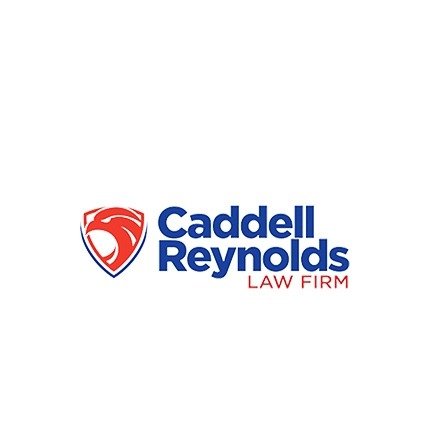Best Workers Compensation Lawyers in Arkansas
Share your needs with us, get contacted by law firms.
Free. Takes 2 min.
Or refine your search by selecting a city:
List of the best lawyers in Arkansas, United States
About Workers Compensation Law in Arkansas, United States
Workers compensation is a system of laws in Arkansas designed to provide financial support and medical care to employees who suffer work-related injuries or illnesses. The goal is to offer timely benefits to workers while protecting employers from costly lawsuits. In Arkansas, the law requires most employers with three or more employees to carry workers compensation insurance. The Arkansas Workers’ Compensation Commission (AWCC) is the agency responsible for overseeing these claims and ensuring both employees and employers follow the law.
Why You May Need a Lawyer
While the workers compensation process is designed to help injured workers, there are situations where legal advice becomes critical. You may need a lawyer if:
- Your claim is denied or disputed by your employer or the insurer.
- Your benefits are delayed or less than expected.
- You experience retaliation at work after filing a claim.
- The injury leaves you permanently disabled or unable to return to your previous job.
- There is a disagreement about the seriousness of your injury or necessary medical treatment.
- Your employer does not have workers compensation insurance even though it is required by law.
Local Laws Overview
Arkansas workers compensation law has several key aspects:
- Most employers with three or more employees must carry workers compensation insurance.
- Employees must report work-related injuries as soon as possible, typically within 30 days.
- Medical treatment for accepted claims is paid for by the employer or insurer, but employees must see an approved doctor unless there are special circumstances.
- Workers may receive wage replacement benefits if they are unable to work due to their injury.
- If the injury results in permanent disability, additional benefits may be available based on the severity of the disability.
- Arkansas follows a no-fault system, meaning you do not have to prove the employer was negligent to receive benefits.
- Filing a false claim is a criminal offense and can result in penalties.
Frequently Asked Questions
What is workers compensation?
Workers compensation is an insurance program required by Arkansas law that provides medical, wage, and rehabilitation benefits to employees who are injured or become ill due to their job.
Who is covered by workers compensation in Arkansas?
Most employees working for businesses with three or more workers are covered, including part-time and seasonal workers. Some groups such as independent contractors, volunteers, and certain farm laborers may not be covered.
What should I do if I am injured at work?
Report your injury to your employer immediately, seek medical attention, and follow your company’s reporting procedures. Delays in reporting may affect your eligibility for benefits.
How long do I have to file a workers compensation claim in Arkansas?
You generally have two years from the date of your injury to file a formal claim, but you must notify your employer of the injury as soon as possible, typically within 30 days.
What benefits can I receive through workers compensation?
Benefits may include coverage of medical expenses, a portion of lost wages, rehabilitation costs, and compensation for permanent disabilities.
Can my employer fire me for filing a workers compensation claim?
No, it is illegal for your employer to retaliate or discriminate against you for filing a workers compensation claim.
Do I have to see the company doctor?
In Arkansas, your employer has the right to select the initial treating physician. If you want to change doctors, you typically need approval from the employer, insurer, or the Workers Compensation Commission.
Can I sue my employer for my work injury?
In most cases, you cannot sue your employer for a work injury if they provide workers compensation benefits. However, there are exceptions if your injury was caused by intentional harm or by a third party.
What happens if my claim is denied?
If your claim is denied, you have the right to request a hearing before the Arkansas Workers’ Compensation Commission. An attorney can assist you in appealing the decision and representing your interests.
Do I need a lawyer to file a workers compensation claim?
You are not required to have a lawyer, but legal representation can be helpful if your claim is denied, benefits are disputed, or your injury is serious or long-lasting.
Additional Resources
If you have questions or need assistance, several organizations can help:
- Arkansas Workers’ Compensation Commission (AWCC) - The state agency overseeing workers compensation claims, rules, and hearings.
- Arkansas Department of Labor - Offers guidance on worker rights and employer responsibilities.
- Legal Aid of Arkansas - Provides free or low-cost legal services to eligible individuals.
- Local law firms and bar associations - Many offer consultations and resources for injured workers.
Next Steps
If you believe you have a workers compensation claim or if you need legal assistance, consider the following steps:
- Report your injury to your employer as soon as possible and document all communications.
- Seek appropriate medical care and keep records of your visits and treatment.
- Contact the Arkansas Workers’ Compensation Commission or a reputable attorney for guidance about your claim.
- Consult with a workers compensation lawyer, especially if your claim is denied or if you are unsure about your rights.
- Gather all relevant documents, including medical reports, accident details, and communication with your employer or insurer.
- Follow up with all required steps and attend all hearings or appointments as scheduled by AWCC or your legal representative.
Lawzana helps you find the best lawyers and law firms in Arkansas through a curated and pre-screened list of qualified legal professionals. Our platform offers rankings and detailed profiles of attorneys and law firms, allowing you to compare based on practice areas, including Workers Compensation, experience, and client feedback.
Each profile includes a description of the firm's areas of practice, client reviews, team members and partners, year of establishment, spoken languages, office locations, contact information, social media presence, and any published articles or resources. Most firms on our platform speak English and are experienced in both local and international legal matters.
Get a quote from top-rated law firms in Arkansas, United States — quickly, securely, and without unnecessary hassle.
Disclaimer:
The information provided on this page is for general informational purposes only and does not constitute legal advice. While we strive to ensure the accuracy and relevance of the content, legal information may change over time, and interpretations of the law can vary. You should always consult with a qualified legal professional for advice specific to your situation.
We disclaim all liability for actions taken or not taken based on the content of this page. If you believe any information is incorrect or outdated, please contact us, and we will review and update it where appropriate.
Browse workers compensation law firms by city in Arkansas
Refine your search by selecting a city.














